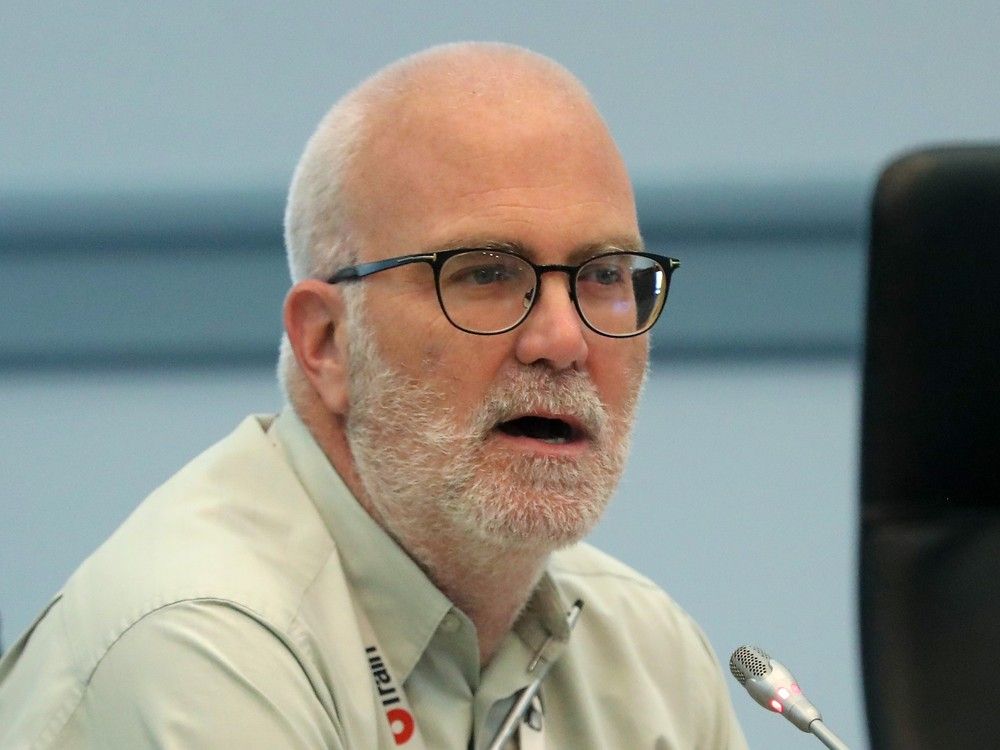The city’s finance and corporate services committee has approved a
budget direction
that would limit next year’s property tax increase to 3.75 per cent.
That includes up to 2.9 per cent for city-wide tax-supported services, the Ottawa Public Library and Ottawa Public Health, and between 2.9 and 6.5 per cent for the Ottawa Police Service.
On an average $410,000 house, the increases would add up to about $237.30, including about $166 in property tax increases, $25 for solid waste and $47.30 for water.
The direction also allows for a range of increases in a few cases, including a transit levy of between three and 15 per cent and transit fare increases between 2.5 and 7.5. per cent.
The budget will be before city council on Nov. 12.
Of the 12-member finance and corporate services committee, only three councillors — Rawlson King, Jeff Leiper and Shawn Menard — voted against approving the budget direction.
Leiper, who has
announced his intention to run for mayor in 2026,
urged fellow councillors to re-imagine the process.
“Year after year, we are taking the same approach that mayor (Jim) Watson brought to the budget-setting exercise of writing a budget according to the directions to reach a tax target without knowing whether or not that target is going to allow staff to achieve the delivery of services that people expect,” said Leiper.
“I don’t think that we have enough analysis of the kinds of choices that we’re going to face in the budget direction report to feel comfortable sending staff away to write a budget that meets an arbitrary number. I will ask my colleagues to consider whether we need a very different kind of budget direction, one that considers whether or not we’re going to be able to achieve the services that residents expect.”
River ward Coun. Riley Brockington said has not seen a budget yet that has fully met his residents’ expectations for core services.
“I have roads in my ward that look like jigsaw puzzles. I have reports in writing from staff that say Class A sidewalks are in critical condition and put public safety in jeopardy,” he said.
Brockington wants be able to tell residents who are paying more what they’re getting for it.
“My residents want basic services provided and they’re wiling to pay for it, but we have not been able to do that yet.”
Some delegations urged councillors to think outside limiting tax increases.
“I’m tired of the upper levels of government being blamed for the city’s financial woes while bragging about how we have kept our tax increases lower than any other city,” James McAvoy told the committee.
“If it’s good enough for Toronto and Vancouver to raise their rates, it’s good enough for us. I want you all to do better. I want you to have the hard conversations with your constituents about what the city needs, instead of continuing with the status quo.”
City staff have
forecast a $10.8-billion gap
between projected infrastructure needs and the funding set aside for those projects over the next 10 years, including $4.8 billion for priority needs in repairing and refurbishing water, wastewater and stormwater infrastructure.
As the city’s facilities get older,
arenas and pools get closed longer for repairs
and the problems worsen, and investing to keep the city’s assets in good repair must be addressed sooner, rather than later, Alex Cullen told the committee.
“It would be irresponsible to avoid dealing with this. City council must face up to this responsibility. It should start by providing direction and developing its 2026 budget to create the funding in 2026 to better maintain its assets.”
Rising costs happen when residents have to pay for failing services, said Marko Miljusevic, a board member of Strong Towns Ottawa, an urban planning advocacy group.
“We talk about how we’re conscious of the rising costs for citizens,” he said. “If we were truly conscious of that, we would also consider the costs that we’re making these people bear when the necessary services that they depend on fall apart. Does the family that’s struggling win when they now have to pay for an Uber because their bus doesn’t show up?”
Somerset Coun. Ariel Troster, who is not on the committee, questioned why there are a range of increases for policing and transit, but not for other areas of the budget. The tax increase parameters mean the city is not looking at the kind of investments in that would stop the majority of crimes in her ward that are “often crimes of desperation or crimes related to the the public health crisis,” she said.
Other levels of governments aren’t giving the city enough funding to solve problems, she conceded. However, it’s frustrating that the budget constrains city staff from stepping up to say how they would solve these issues, she said.
Meanwhile, user fees can increase costs to households more than tax increases, she argued.
“I would rather pay a few more dollars so that my child doesn’t have to pay $135 a month for a bus pass,” she said. “I think that when we underfund city services, it means we have to increase user fees, and life actually gets more expensive for people.”
But discussion at the committee table showed the stark divide between urban wards and those outside the greenbelt.
Rideau-Jock Coun. David Brown said the city is spending more on transit than ever before and taxpayers are paying more for a failing service.
“We’re losing massive amounts of money, and property taxpayers are being asked to cover the difference,” he said.
“I’m concerned we’re not putting fares up high enough. If you use a service and you pay for it, you respect it. If it’s free, that’s what you think it is.”
The 3.75 per cent tax increase
is lower than last year’s tax
hike and the average annual tax increase is around 2.9 per cent over the past 10 years, Mayor Mark Sutcliffe said last month.
On Tuesday, he asked the city’s chief financial officer, Cyril Rodgers, if, in his professional opinion, the city has taken a “careful, effective, responsible approach to managing risk and managing our long-term assets.”
Rogers replied in the affirmative. For example, in 2015, the overall value of the city’s reserves stood at about $240 million. It is now in excess of $530 million, said Rogers.
Related
- Disgraced former lawyer James Bowie sentenced four years
- What the public service risks losing in a full return to the office



